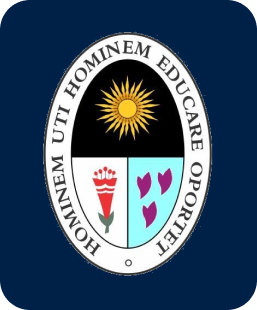Effectiveness of the manual ¨Living Sounds¨ and enhancing in learning English pronunciation in fifth grade students at Claretiano School 2014
Portada

Citas bibliográficas
Código QR
Autores
Director
Autor corporativo
Recolector de datos
Otros/Desconocido
Director audiovisual
Editor/Compilador
Editores
Tipo de Material
Fecha
Cita bibliográfica
Título de serie/ reporte/ volumen/ colección
Es Parte de
Resumen
El propósito de esta tesis es establecer el uso de un manual complementario para mejorar la expresión oral en inglés como segunda lengua. El enfoque principal de esta tesis es conocer cómo el Manual “Sonidos Vivos” influyó en la mejora de la pronunciación en los alumnos de quinto grado de la Escuela Claretiano. Y su propósito principal es implementar el uso de este manual complementario. Se les dio una evaluación preliminar a los estudiantes para obtener un registro del desempeño de los estudiantes en áreas de énfasis de palabras de contenido, reducción de palabras gramaticales, entonación de preguntas, inquietudes con sonidos discretos del habla, etc. Estas evaluaciones no solo se utilizaron para rastrear el progreso individual de los estudiantes a lo largo del semestre, sino que también proporcionan un punto de partida para el período. Con la ayuda de este manual, se anima a los alumnos a monitorear sus necesidades y concentrar su energía en desarrollar estrategias personales y ayudarlos a mejorar diferentes aspectos de su pronunciación”. Aproximadamente nueve y once años participaron en este estudio y hemos llegado a las siguientes conclusiones: Tomando en consideración los resultados de la prueba de hipótesis, podemos inferir que el manual “Living Sounds” ayudó mucho a los estudiantes en la mejora de la pronunciación en inglés. Alumnos de quinto grado del Colegio Claretiano. Numerosos alumnos entre 9 y 11 años de quinto grado de la Escuela Claretiano, inscritos en el proyecto de aprendizaje de inglés que implica el uso del Manual Complementario “Sonidos Vivos”; se sintió animado a mejorar con el seguimiento constante y la retroalimentación de un maestro. Casi el 80% de los estudiantes participaron activamente durante la aplicación de este manual, y se verificaron mediante una lista de asistencia. No se debe considerar ninguna observación del 80% de los estudiantes por parte del maestro.
Resumen
The purpose of this thesis is to establish the use of a complementary manual to improve oral expression in English as a second language. The main focus of this thesis is to know how the Manual “Living Sounds” influenced the improvement of pronunciation in the students of fifth grade at Claretiano School. And its main purpose is to implement the use of this supplementary manual. A preliminary assessment was given to the students to get a record of the students’ performance in areas of stress of content words, reduction of grammar words, question intonation, concerns with discrete speech sounds and so forth. These assessments were not only used to track individual student progress over the course of the semester, but they also provide a starting point to the term. With the help of this manual, learners are encouraged to monitor their needs and focus their energy on developing personal strategies and helped them improve different aspects of their pronunciation”. About nine and eleven years old participated in this study and we have reached the following conclusions: Taking into consideration the results of the hypothesis test, we can infer that the manual “Living Sounds” helped the students a lot in the improvement of pronunciation in English fifht grade students at Claretiano School. Many students between 9 and11 years of age at fifth grade at Claretiano School, registered in the English learning project involving the use of the Supplementary Manual “Living Sounds”; felt encouraged to improve with the constant monitoring and feedback from a teacher. Almost 80% of students actively participated during the application of this manual, and were checked using an assistance list. No observation of the 80% percent of the students by the teacher should not be considered.

 PDF
PDF  FLIP
FLIP 


